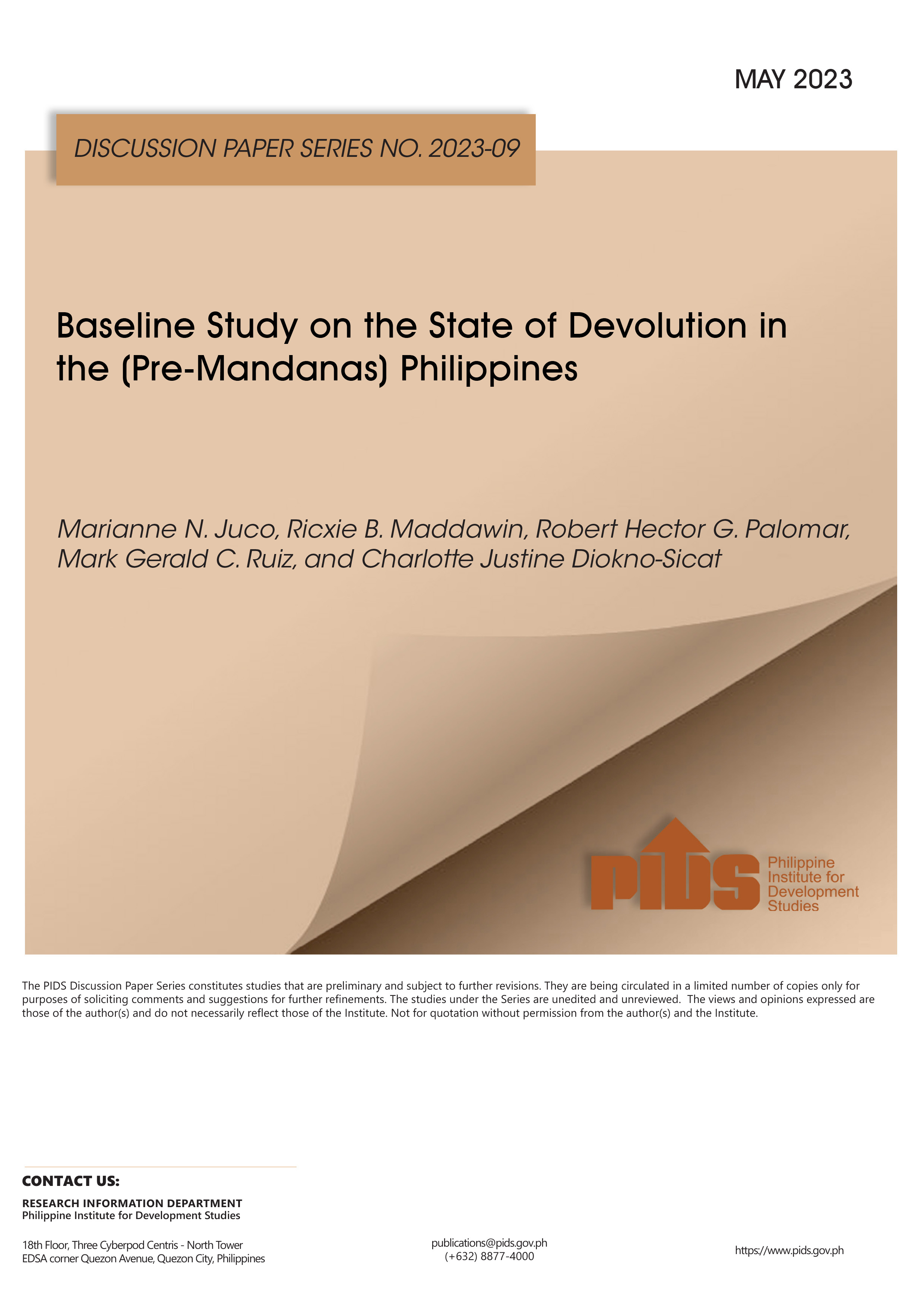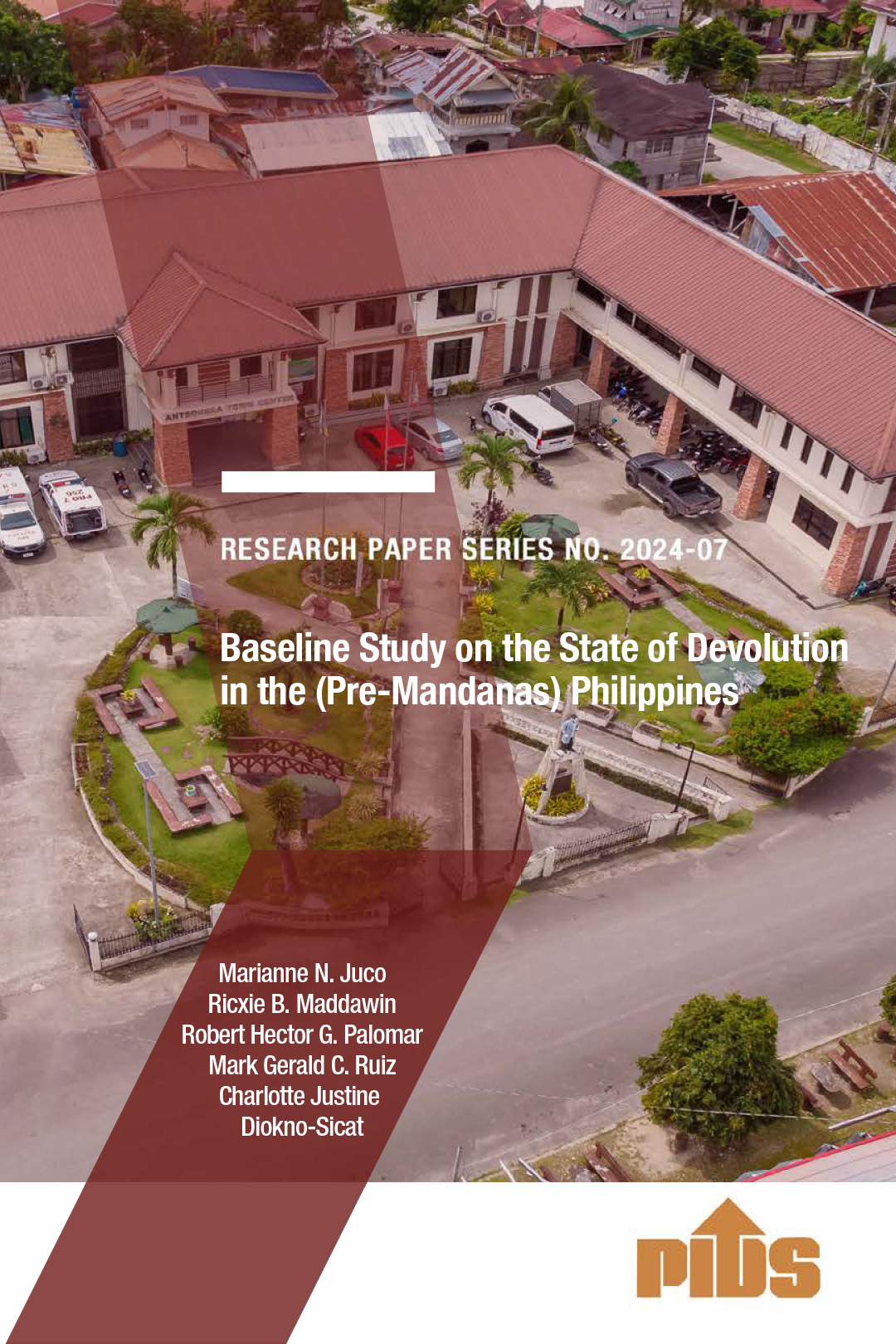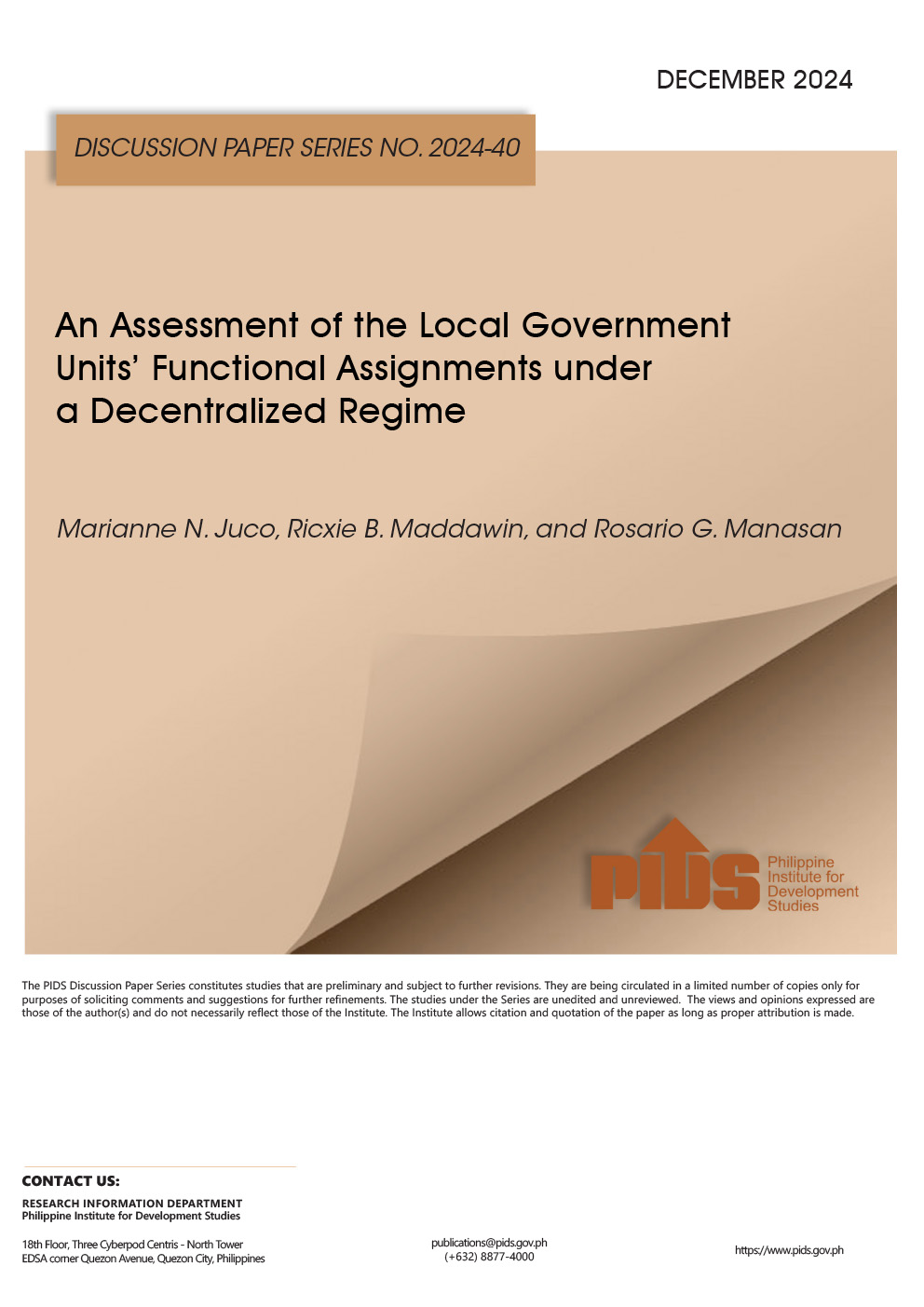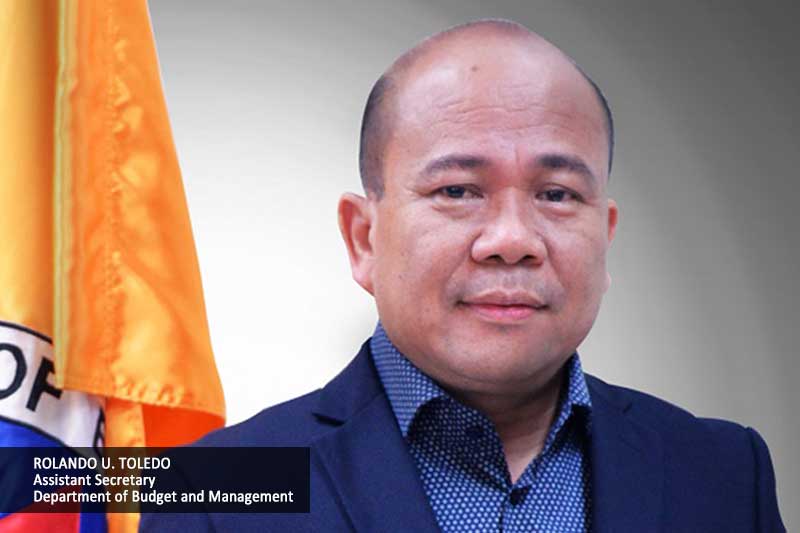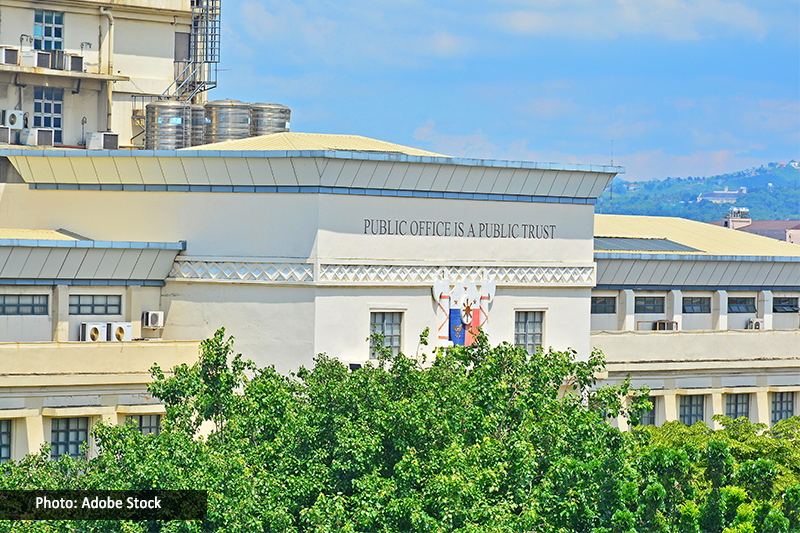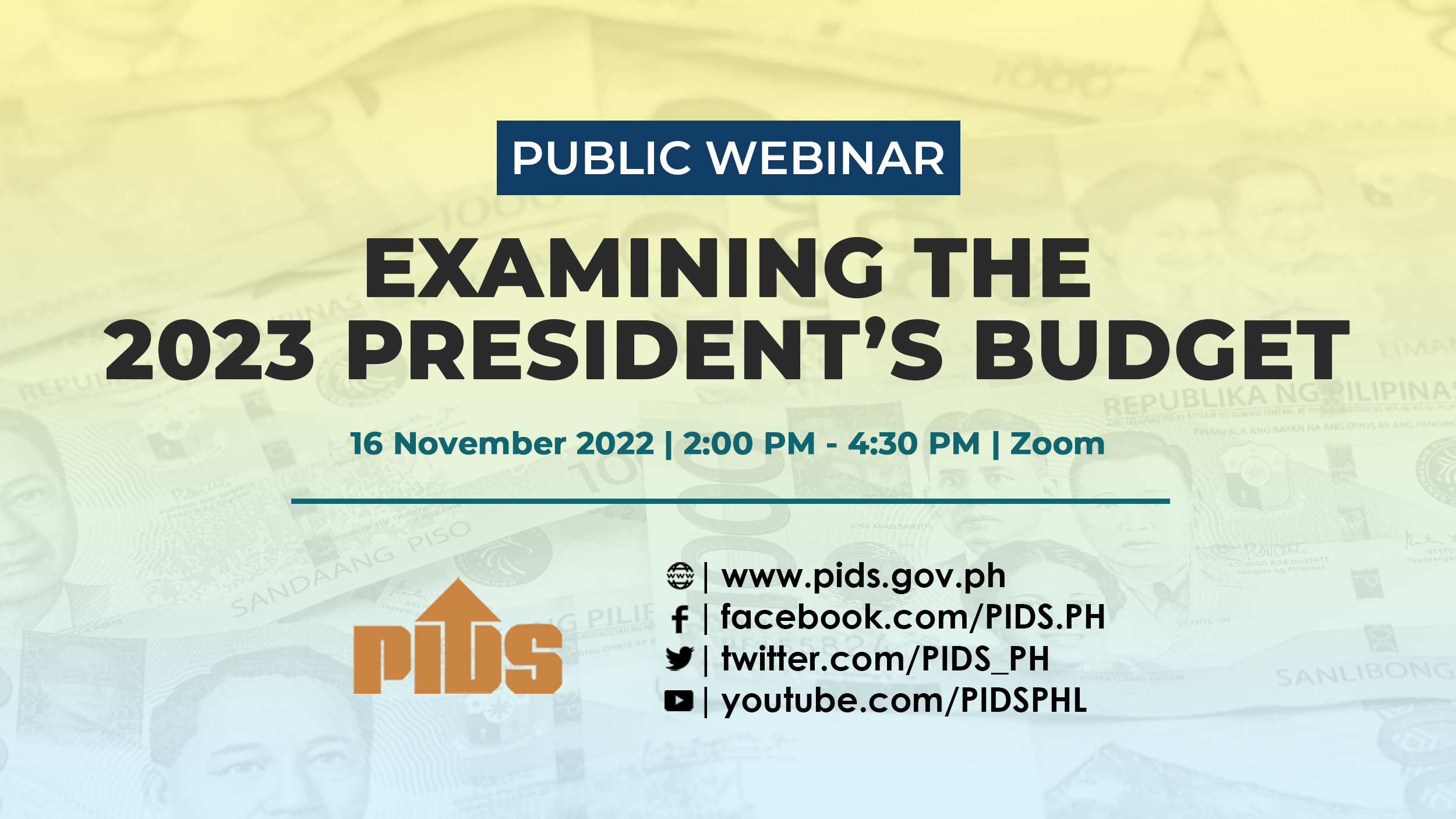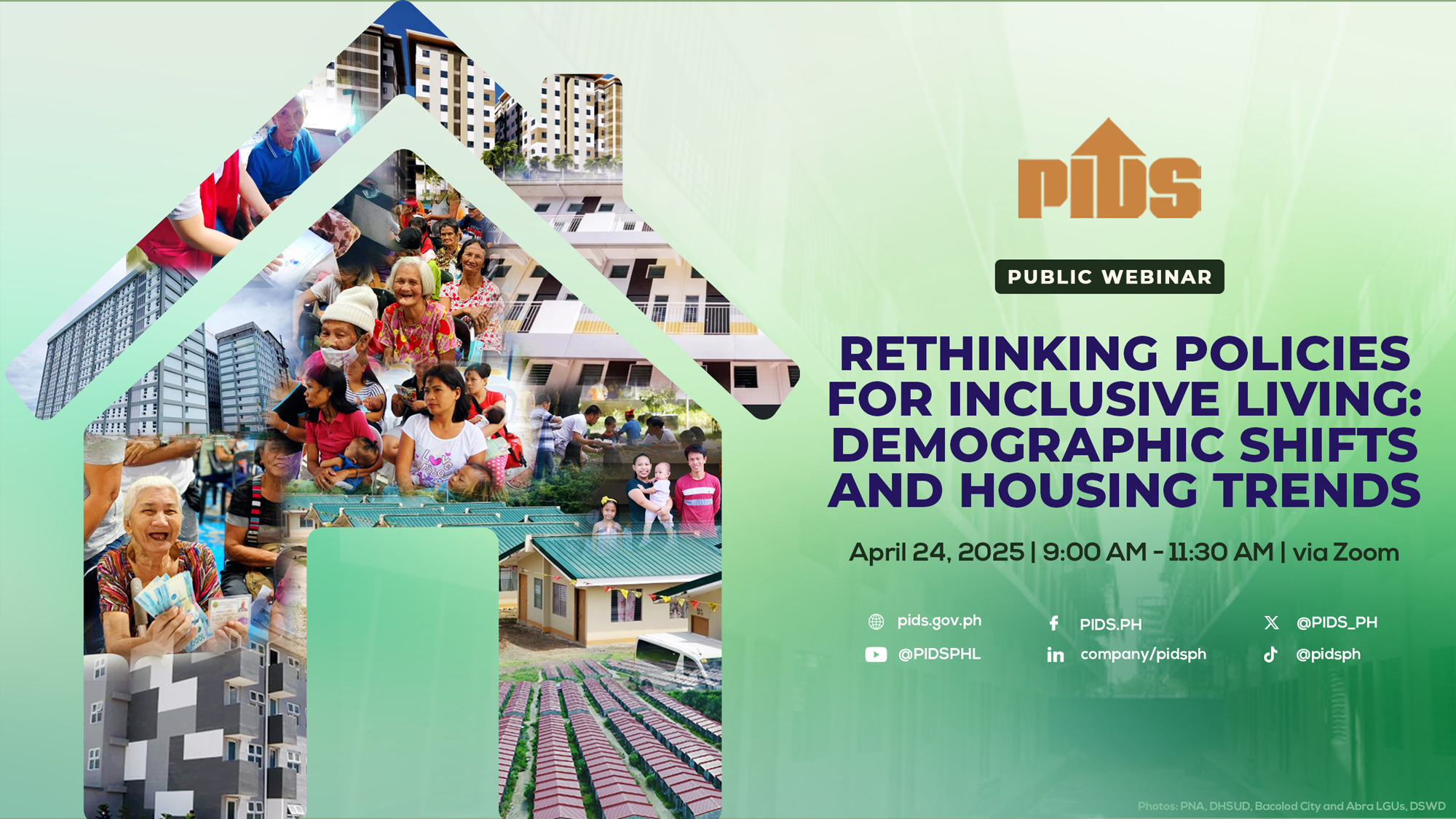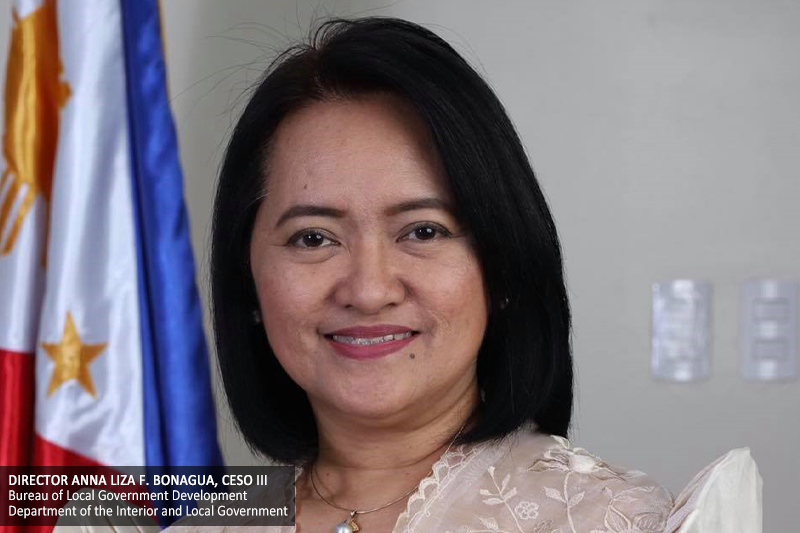
The lack of coordination between the national and local governments in implementing Mandanas ruling could lead to a gap in service delivery.
This was according to Director Anna Liza Bonagua of the Department of the Interior and Local Government’s (DILG's) Bureau of Local Government Development during a webinar organized by the Philippine Institute for Development Studies (PIDS), which featured its study “Analysis of the 2022 President’s Budget”.
She said this is likely to happen if there would be no “close” coordination between national and local governments and no updating and fine-tuning of local government units’ (LGUs’) capacities during the devolution transition period.
With the implementation of the Supreme ruling on the Mandanas-Garcia petition, the national tax allotment (formerly known as the internal revenue allotment) is 38 percent higher in 2022, almost 20 percent of the proposed budget. This means more resources going to LGUs.
Bonagua, a discussant at the webinar, said that the national government has identified spending responsibilities, specifically on devolved services, to be carried out by LGUs. Meanwhile, the national government will serve as secondary support in the process.
“This new phase of decentralization provides prospects for improved service delivery, as experts would say…Local governments [being] on the ground can directly feel the citizens’ needs and aspirations. Hence, decentralization encourages prompt responses and better matching of government services to local needs, making governance more inclusive,” she said.
However, the DILG director emphasized that there is a need to look at the capacities of local governments, especially in absorbing re-devolved functions while maintaining their full autonomy in planning and managing their resources.
“There [is an] urgent need to provide capacity building to local governments to improve their implementation capacities along with the identified devolved mandates…and provide guidance to enjoin [them] to channel the increased resources towards government’s priority particularly the campaign in responding to COVID-19,” she said.
Moreover, Bonagua stressed that the national government must define the standards to guide LGUs in providing a comparable level of services across provinces, cities, and municipalities as well as put in place the necessary monitoring and assessment mechanism to know the level of effectiveness and citizen satisfaction on the LGU service delivery.
On the proposed allocation for the growth equity fund (GEF), Bonagua said that this is one of the government’s responses to current issues such as marginalization, unequal development, high poverty incidence, and disparities in the net fiscal capacities of local governments.
“The GEF is primarily designed to address the unequal fiscal capacities of local governments in need. It [is meant] to cater to poor, disadvantaged, and development-challenged [LGUs] so that they can cope,” she explained.
According to Bonagua, the GEF is a welcome development for the DILG, especially for the LGUs, to ensure priority spending on the national identification and implementation of the community-based monitoring system (CBMS). Initiatives like the CBMS will “provide accurate information to aid in local planning, budgeting, [and] beneficiary targeting for more efficient delivery of social services”.
She said that the DILG has required LGUs to formulate their respective local revenue forecasts and mobilization strategies, which is an integral requirement of the devolution transition plans.
Lastly, Bonagua pointed out a need to focus part of the national government agencies’ budget on maximizing engagement with civil society organizations and other government partners and strengthening citizens' capacity to demand accountability.
“The citizens, represented by civil society organizations, can maximize their roles as Gabay, Kaagapay, [at] Bantay at the local level, thereby espousing greater participation, transparency, and accountability of LGUs,” she concluded. ###
You may watch the webinar at https://www.facebook.com/PIDS.PH/videos/599190234698962 or https://www.youtube.com/watch?v=6L63pHiKr_4.
For more videos of PIDS events, go to https://www.pids.gov.ph/videos.
This was according to Director Anna Liza Bonagua of the Department of the Interior and Local Government’s (DILG's) Bureau of Local Government Development during a webinar organized by the Philippine Institute for Development Studies (PIDS), which featured its study “Analysis of the 2022 President’s Budget”.
She said this is likely to happen if there would be no “close” coordination between national and local governments and no updating and fine-tuning of local government units’ (LGUs’) capacities during the devolution transition period.
With the implementation of the Supreme ruling on the Mandanas-Garcia petition, the national tax allotment (formerly known as the internal revenue allotment) is 38 percent higher in 2022, almost 20 percent of the proposed budget. This means more resources going to LGUs.
Bonagua, a discussant at the webinar, said that the national government has identified spending responsibilities, specifically on devolved services, to be carried out by LGUs. Meanwhile, the national government will serve as secondary support in the process.
“This new phase of decentralization provides prospects for improved service delivery, as experts would say…Local governments [being] on the ground can directly feel the citizens’ needs and aspirations. Hence, decentralization encourages prompt responses and better matching of government services to local needs, making governance more inclusive,” she said.
However, the DILG director emphasized that there is a need to look at the capacities of local governments, especially in absorbing re-devolved functions while maintaining their full autonomy in planning and managing their resources.
“There [is an] urgent need to provide capacity building to local governments to improve their implementation capacities along with the identified devolved mandates…and provide guidance to enjoin [them] to channel the increased resources towards government’s priority particularly the campaign in responding to COVID-19,” she said.
Moreover, Bonagua stressed that the national government must define the standards to guide LGUs in providing a comparable level of services across provinces, cities, and municipalities as well as put in place the necessary monitoring and assessment mechanism to know the level of effectiveness and citizen satisfaction on the LGU service delivery.
On the proposed allocation for the growth equity fund (GEF), Bonagua said that this is one of the government’s responses to current issues such as marginalization, unequal development, high poverty incidence, and disparities in the net fiscal capacities of local governments.
“The GEF is primarily designed to address the unequal fiscal capacities of local governments in need. It [is meant] to cater to poor, disadvantaged, and development-challenged [LGUs] so that they can cope,” she explained.
According to Bonagua, the GEF is a welcome development for the DILG, especially for the LGUs, to ensure priority spending on the national identification and implementation of the community-based monitoring system (CBMS). Initiatives like the CBMS will “provide accurate information to aid in local planning, budgeting, [and] beneficiary targeting for more efficient delivery of social services”.
She said that the DILG has required LGUs to formulate their respective local revenue forecasts and mobilization strategies, which is an integral requirement of the devolution transition plans.
Lastly, Bonagua pointed out a need to focus part of the national government agencies’ budget on maximizing engagement with civil society organizations and other government partners and strengthening citizens' capacity to demand accountability.
“The citizens, represented by civil society organizations, can maximize their roles as Gabay, Kaagapay, [at] Bantay at the local level, thereby espousing greater participation, transparency, and accountability of LGUs,” she concluded. ###
You may watch the webinar at https://www.facebook.com/PIDS.PH/videos/599190234698962 or https://www.youtube.com/watch?v=6L63pHiKr_4.
For more videos of PIDS events, go to https://www.pids.gov.ph/videos.

